#cppOpt
A header-only C++ library which allows the numerical optimisation of any given problem, function, program or you-name-it
without knowing the "function" of the problem simply by smartly testing certain values
- you only have to include a single header file
cppOpt.h - using heuristic algorithms http://en.wikipedia.org/wiki/Heuristic
- using Catch as testing framework https://github.com/philsquared/Catch
##version 0.2.11
##optimise anything! optimise any given problem by defining your very own Solver class:
template <typename T>
class MySolver : public OptSolverBase<T>
{
public:
void calculate(OptCalculation<T> &optCalculation) const
{
optCalculation.result = YOUR_CODE_COMES_HERE;
}
};for optimising x^2 you could write:
void calculate(OptCalculation<T> &optCalculation) const
{
//defined x^2 as function to be optimised
optCalculation.result = pow(optCalculation.get_parameter("X"),2);
}you can even run other programs:
void calculate(OptCalculation<T> &optCalculation) const
{
std::string parameter1 = optCalculation.get_parameter("X").to_string();
std::string parameter2 = optCalculation.get_parameter("Y").to_string();
system(( "someExecuteable -p1 " + parameter1 + " -p2 " + parameter2).c_str() );
optCalculation.result = parse_generated_output_file();
}##define your parameters and boundaries
OptBoundaries<T> optBoundaries;
optBoundaries.add_boundary(-5.0, 5.0, "X");
optBoundaries.add_boundary(-50.0, 55.0, "Y");
optBoundaries.add_boundary(33.0, 3.0, "potatoe");##minimize, maximize, approach or diverge
OptTarget optTarget = MINIMIZE;
OptTarget optTarget = MAXIMIZE;
OptTarget optTarget = APPROACH;
OptTarget optTarget = DIVERGE;##templated use any of these:
<float>
<double>
<long double>##choose your algorithm
OptSimulatedAnnealing<double> opt1(optBoundaries,
maxCalculations,
&mySolver,
optTarget,
targetValue,
coolingFactor,
startChance);
OptThresholdAccepting<double> opt2(optBoundaries,
maxCalculations,
&mySolver,
optTarget,
targetValue,
coolingFactor,
threshold,
thresholdFactor);
OptGreatDeluge<double> opt3(optBoundaries,
maxCalculations,
&mySolver,
optTarget,
targetValue,
coolingFactor,
waterLevel,
rain);
OptEvolutionary<double> opt4(optBoundaries,
maxCalculations,
&mySolver,
optTarget,
targetValue,
coolingFactor,
nIndividualsStart,
nIndividualsSelection,
nIndividualsOffspring,
mutation);##multithreading you can spawn any number of objects with different algorithms, boundaries, configurations or goals
##go!
OptBase<double>::run_optimisations();
//or
OptBase<double>::run_optimisations(NUMBER_OF_WORKER_THREADS);
//or
OptBase<double>::run_optimisations(NUMBER_OF_WORKER_THREADS, SPECIFIC_RANDOM_SEED);##logging / outputting results you can enable thread-safe logging as simple as:
OptBase<double>::enable_logging("logfile.log", optBoundaries);X RESULT
1.083865 1.174763
3.901791 15.223976
3.862659 14.920135
...
you can also define custom delimiters and line endings (e.g. for csv):
OptBase::enable_logging("logfile.log", optBoundaries, ";", "\n");you can retrieve both the best values of all your optimisers or specific ones:
OptCalculation<double> best1 = opt1.get_best_calculation();
OptCalculation<double> best2 = opt2.get_best_calculation();
OptCalculation<double> bestAll = OptBase<double>::get_best_calculation(optTarget, targetValue);##examples
###optimising xx [-5.0:+5.0] with simulated annealing
note that the optimiser doesn't "know" that the function actually is xx
####minimizing:
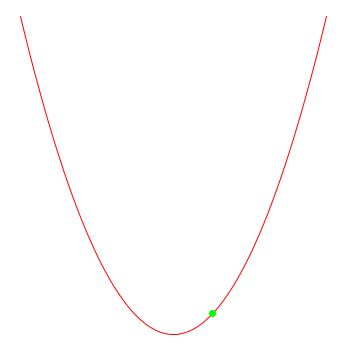
####maximizing:
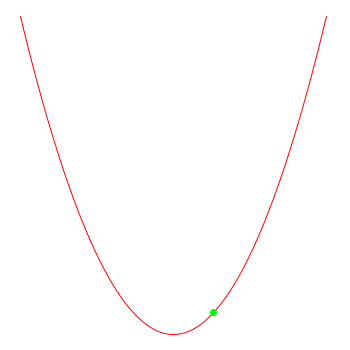
####approaching 3.0:
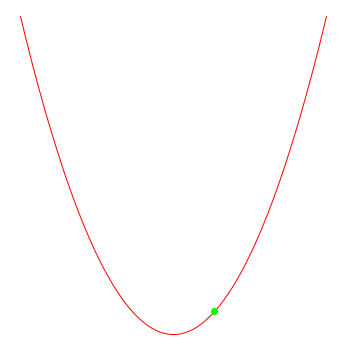
####diverging from 3.0:
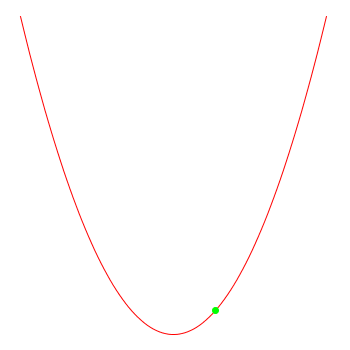
check out https://github.com/I3ck/cppOptImages for more images
or examples/ for code examples
###optimising the rastrigrin function with simulated annealing
http://en.wikipedia.org/wiki/Rastrigin_function
####one-dimensional
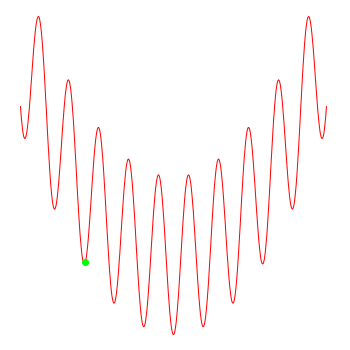
####two-dimensional
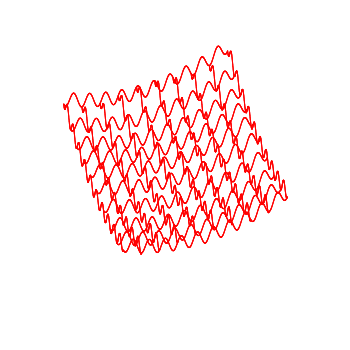
#usage
##configuration
open up inc/config.h to enable/disable DEBUG output
//#define DEBUG##building the examples / tests
cmake .
make
##including
directly include cppOpt.h which includes all required headers or choose the header files you want to use
##testing
after using cmake and make check bin/ for the test_xyz executeables
since the tests check whether the algorithms reach the wanted values, it's possible that the tests might fail in some cases (due to the random nature of the algorithms). Just restart the test in such a case.
Only if the test fails often there's an actual bug
#algorithms explained / referenced
##simulated annealing http://en.wikipedia.org/wiki/Simulated_annealing
##threshold accepting http://comisef.wikidot.com/concept:thresholdaccepting
##great deluge http://en.wikipedia.org/wiki/Great_Deluge_algorithm
##evolutionary https://en.wikipedia.org/wiki/Evolutionary_algorithm
#contribute feel free to open issues if you'd like to have new algorithms added, would like to have a new feature or found a bug